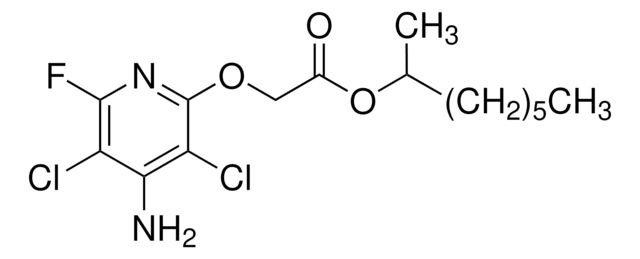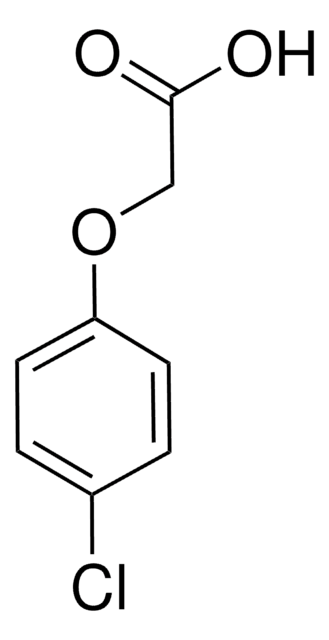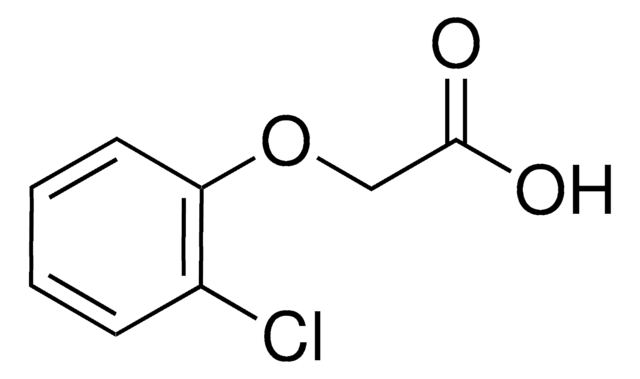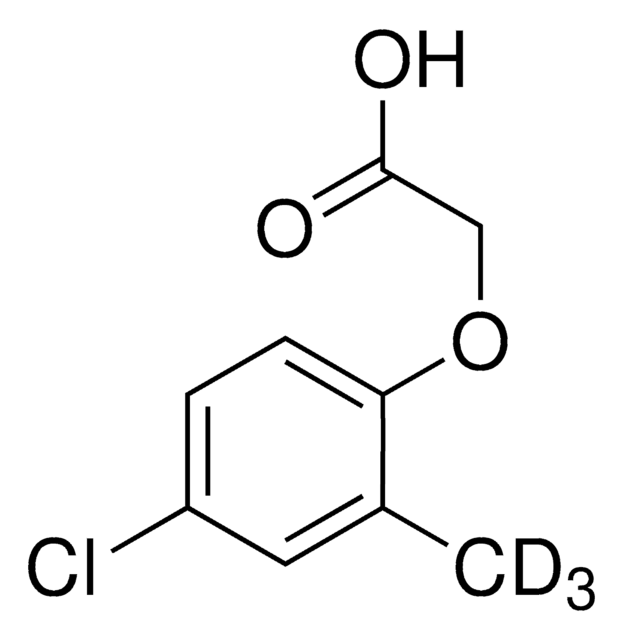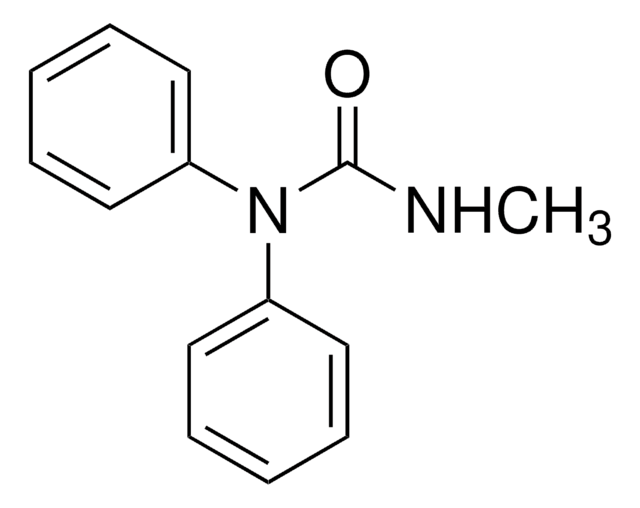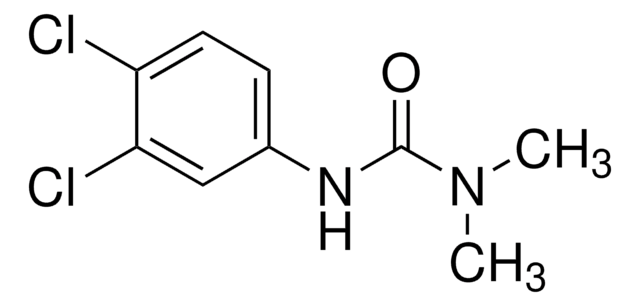25190
Acide 4-chloro-2-méthylphénoxyacétique
technical, ≥95.0% (T)
Synonyme(s) :
Acide 4-chloro-o-tolyloxyacétique
About This Item
Produits recommandés
Qualité
technical
Niveau de qualité
Essai
≥95.0% (T)
Forme
solid
Pf
114-118 °C (lit.)
Solubilité
water: insoluble(lit.)
Groupe fonctionnel
carboxylic acid
chloro
Chaîne SMILES
Cc1cc(Cl)ccc1OCC(O)=O
InChI
1S/C9H9ClO3/c1-6-4-7(10)2-3-8(6)13-5-9(11)12/h2-4H,5H2,1H3,(H,11,12)
Clé InChI
WHKUVVPPKQRRBV-UHFFFAOYSA-N
Vous recherchez des produits similaires ? Visite Guide de comparaison des produits
Catégories apparentées
Description générale
Mention d'avertissement
Danger
Mentions de danger
Conseils de prudence
Classification des risques
Acute Tox. 4 Oral - Aquatic Acute 1 - Aquatic Chronic 1 - Eye Dam. 1 - Skin Irrit. 2
Code de la classe de stockage
11 - Combustible Solids
Classe de danger pour l'eau (WGK)
WGK 2
Équipement de protection individuelle
dust mask type N95 (US), Eyeshields, Gloves
Faites votre choix parmi les versions les plus récentes :
Déjà en possession de ce produit ?
Retrouvez la documentation relative aux produits que vous avez récemment achetés dans la Bibliothèque de documents.
Les clients ont également consulté
Notre équipe de scientifiques dispose d'une expérience dans tous les secteurs de la recherche, notamment en sciences de la vie, science des matériaux, synthèse chimique, chromatographie, analyse et dans de nombreux autres domaines..
Contacter notre Service technique




